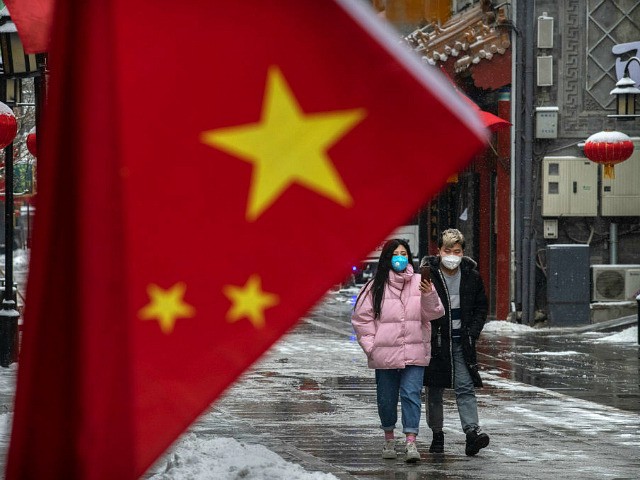U.S. media outlets uncritically relayed China’s claim of zero new coronavirus infections in Hubei province and the city of Wuhan on Thursday, mixing in outrageous helpings of fawning praise for the Communist dictatorship that unleashed the virus upon the world.
The American media narrative appears to be that zero infections in Hubei mean everything that happened in December and January is forgotten, and China is now the world leader in pandemic defense.
CNN hailed a “major turning point in the global battle to contain COVID-19,” the disease every mainstream media outlet suddenly and simultaneously decided can no longer be referred to as the “Wuhan virus”:
The milestone represents a turnaround for the Chinese government. Just last month, mainland China was reporting thousands of cases per day, and was considered the most high-risk infection area in the world.
Now, after months of lockdowns and travel restrictions affecting hundreds of millions of citizens, strict home quarantines, and an unprecedented nationwide effort, the country is down to zero reported new locally transmitted cases.
Instead, the threat is now coming from overseas. The number of cases and deaths outside China have exploded in the past two weeks, with the pandemic hitting the US and Europe particularly hard.
Another CNN piece literally absolved the Chinese Communist Party of all misdeeds and called its latest pronouncements a “ray of hope” while complaining about the “fumbled initial government response” in the United States:
There’s a ray of hope emanating from the first epicenter of the outbreak. For the first time since the pandemic began, China announced no new locally transmitted infections today, marking a turning point in the global battle to contain Covid-19.
The milestone will likely be held up as proof that China’s sweeping, top-down efforts to control the virus are working, despite persistent allegations that local officials mishandled the initial outbreak. But the draconian restrictions have exacted a deep toll on the millions of Chinese forced into lockdown, not to mention China’s economy, Ben Westcott and Shanshan Wang write.
Still, it’s a pivotal moment as global infections top 200,000, with every continent except for Antarctica now grappling with mounting crises of their own.
In the US, where a fumbled initial government response put America on the back foot, officials are now preparing for a very long fight.
The New York Times headline declared: “World Feared China Over Coronavirus. Now the Tables Are Turned.”
The Times portrayed China as the victim of unreasonable “fear and suspicion” which has been banished by an unimaginable “reversal of fortune” brought about by Beijing’s “uncompromising response” to the epidemic. Meanwhile, President Donald Trump was castigated for “trying to push blame back on China, worsening existing tensions between the two superpowers.”
“Despite warnings that he is encouraging xenophobia, Mr. Trump has repeatedly used the term ‘China virus’ in what critics see as an effort to distance himself from the problem,” the Times wrote.
The article added a dollop of criticism of Beijing for “falsely suggesting that the virus started with American troops,” but claimed the Chinese only did this in “retaliation” for Trump’s comments, which gets the timeline backward. China began floating conspiracy theories about the Wuhan virus having foreing origins in February and shifted to explicitly blaming the U.S. Army for creating and spreading the virus last week. Trump’s first use of the term “Chinese Virus” was in a Twitter post on Monday.
Another New York Times report on the zero-infections claim from Hubei province was much more balanced and mindful of past events:
If Thursday’s numbers are more than a statistical blip, it would represent a remarkable turnaround for the Chinese government, which drew widespread public outrage when officials initially concealed and mismanaged the outbreak, even punishing the doctors who sought to raise the alarm.
NBC News called the news from China “stunning” and said the Chinese (along with South Korea) “may have helped Western Europe and America by delaying the arrival of the coronavirus here.”
“Now they are worrying that they may get re-infected by the coronavirus from the rest of the world,” correspondent Keir Simmons said of China.
NPR said the zero-infections report was a milestone for “China, the country on the frontlines of the novel coronavirus pandemic” and said cases arriving from abroad “highlight the need for the government to consolidate its hard-won progress against the virus by screening out infections from beyond its borders.”
Regardless of one’s opinion of the Chinese government, it would certainly be good news if new infections in the original outbreak area really have reached zero – with all due caution for the dangers of making important decisions based on data from a government that has a track record of providing false information that suits the Communist Party’s political needs.
Zero new infections in Hubei province would mean other countries battling severe outbreaks of the Wuhan virus should see light at the end of the tunnel themselves. It’s news just about everyone wants to believe… which is, generally speaking, a sign that skepticism is called for.

COMMENTS
Please let us know if you're having issues with commenting.